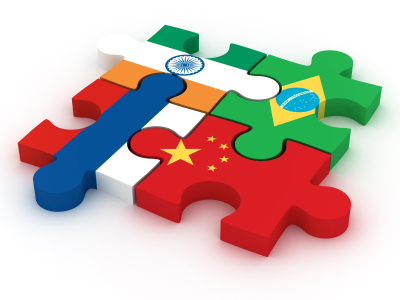When I was looking for a master program, I wanted something that could make me experience today’s global situation and that could help me contribute, in a certain way, with this very complex and rapid world dynamic.
It is a fact that today we are living the globalization at a glance. Each day something that happens on Asia may affect America or a business performed in Africa may affect certain Europe’s decision. As time goes on, these situations become part of us, as they arise from the development and economic growth that we are and will be facing during the next years.
One term that you will listen constantly if you are an International Business student is “Emerging Markets” so let’s start by defining this concept. If you look for the definition in Google, you may find answers like: “a country that has some characteristics of a developed market, but does not meet standards to be a developed market”; well this is right, but not completely accurate. For me, is a much more inclusive to define emerging markets as “a group of countries that are in a transition phase (not too rich, not too poor), not too closed to foreign capital and/or where there is significant potential for economic or political instability.”
Let me emphasize that these countries are incredibly diverse (culturally, geographically, and even economically). For example, right now Brazil and Russia are in recession, while India and Mexico are enjoying a robust macroeconomic growth. At the same time, these countries are eager to catch up with their richer peers, because all of them are facing microeconomic difficulties and political instability.

But while definitions and classifications may vary, there is a general consensus about their role in the current economic situation. Euromonitor highlights the following statements:
These countries have been exposed to different challenges. Christine Lagarde, Managing Director of the IMF provided some interesting examples of today’s Emerging Markets: I would like to highlight some of them:
In conclusion a new economic reality has slowly emerged as countries have developed and grown richer. Is true that in today’s economy, some of these countries are experiencing difficulties after many years of strong growth; nevertheless, is not something to fear, but it does require us to be aware and think a bit differently, a bit more multilaterally and emphasizing the importance of mutual support.
The main idea when looking at the Emerging Markets is that it takes two to grow. They are constantly changing and these changes are helping them to grow, but also the business and transactions with the world’s leading economies play a big role in this growth. In summary, strong policy actions by emerging and advanced economies can be a win to win for both, meaning a win-win for the global economy.
Last but not least, if you are interested in these types of topics, then you are the ideal MIB candidate. As future leaders we will have the opportunity to play our part in this complex world, dealing with topics like this and proposing different ideas and opinions according to what is needed